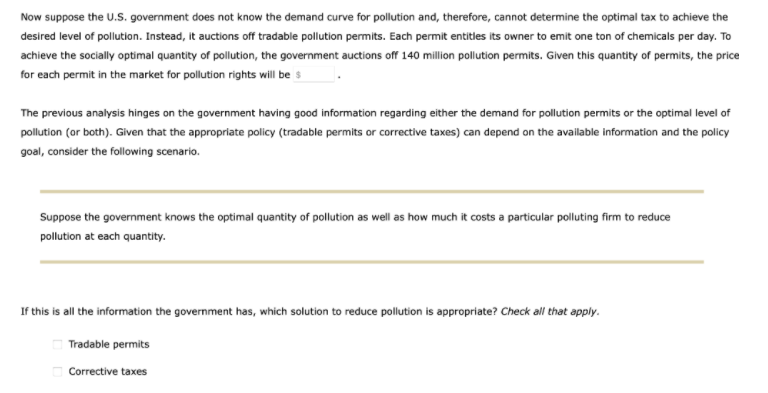The previous analysis hinges on the government having good information regarding either the demand for pollution permits or the optimal level of pollution (or both). Given that the appropriate policy (tradable permits or corrective taxes) can depend on the available information and the policy goal, consider the following scenario. Suppose the government knows the optimal quantity of pollution as well as how much it costs a particular polluting firm to reduce pollution at each quantity. If this is all the information the government has, which solution to reduce pollution is appropriate? Check all that apply. Tradable permits Corrective taxes
Now suppose the U.S. government does not know the demand curve for pollution and, therefore, cannot determine the optimal tax to achieve the desired level of pollution. Instead, it auctions off tradable pollution permits. Each permit entitles its owner to emit one ton of chemicals per day. To achieve the socially optimal quantity of pollution, the government auctions off 140 million pollution permits. Given this quantity of permits, the price for each permit in the market for pollution rights will be $----- .
The previous analysis hinges on the government having good information regarding either the demand for pollution permits or the optimal level of pollution (or both). Given that the appropriate policy (tradable permits or corrective taxes) can depend on the available information and the policy goal, consider the following scenario. Suppose the government knows the optimal quantity of pollution as well as how much it costs a particular polluting firm to reduce pollution at each quantity.
If this is all the information the government has, which solution to reduce pollution is appropriate? Check all that apply.
Tradable permits
Corrective taxes

Trending now
This is a popular solution!
Step by step
Solved in 2 steps









